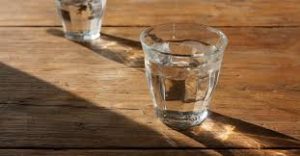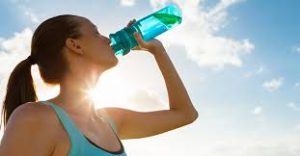
When and how much water should be drunk? Most people may know the answer to this question, but different experts have different opinions on this subject and almost everyone has the right opinion, if you understand the logic behind them. Basically, our body’s water requirement depends on various factors like our area of living, our lifestyle and our health. Most physicians recommend drinking at least 8-10 glasses of water a day to keep the body hydrated.
But Ayurveda has a different opinion on these principles. According to Ayurveda, our body has some natural needs from which we get hints like hunger, thirst, sleep, urination and defecation.
So whenever you feel hungry, eat food and when you feel thirsty, then you drink water. Not paying attention to these desires every time can lead to starvation and dehydration.
Now the next question arises that how much water should you drink in a day, when should you drink and how should you drink…
How much water should be drunk in a day?
However, according to some theories we should drink at least eight glasses of water every day as it also keeps your body detoxified, skin nourished and hydrated, but Ayurveda denies this fact.
According to Ayurveda, water is a coolant. Excessive water intake may not make you feel hungry, but it can cause indigestion and can also lead to a serious condition called Ama. Ama is caused by improper metabolism and improper digestion in the digestive system and cells and tissues of the body.
Drinking too much water causes an increase in Kapha and Vata and a decrease in bile, which affects the digestive power of the body. All these doshas maintain the balance of our body. Even a slight change in these affects our digestive system. Therefore, you should also avoid excessive water intake. Instead, keep drinking water until you feel satisfied.
Read more:Having watery semen? All you need to know
Best time to drink water
The question of whether to drink water during a meal definitely comes up is whether we should drink water before meals or after meals or can we drink water during meals. Some doctors suggest that you should not drink water during meals. Instead you should wait an hour or more to drink water. Some other doctors do not suggest drinking water before eating food. We do not understand when we should actually drink water?
So let us solve this mystery with an Ayurvedic approach.
We drink water only when we are thirsty. Thirst is a natural necessity and whenever thirst is felt, it should be noted. Similarly, feeling hungry, going for urination or defecation are all natural requirements. The sole purpose of all this is to maintain the biological process of the body.
Many doctors do not recommend you drink water in between meals. But Ayurveda opposes this fact. According to Ayurveda you can drink water in between your meals.
The right time to drink water while eating food
The third option i.e. according to Ayurveda, drinking water during meals is quite beneficial. By doing this, water breaks food into fine and small particles which helps in digestion. And if you are eating something oily or spicy, it calms your thirst. Thus, drinking water in between meals is an ideal and healthy habit. But this does not mean that you should drink a glass filled water to quench your thirst. Try to drink a minimal amount of water during your meal. Otherwise it will fill your stomach with water and you will not be able to eat enough.
If you want to drink water during meals, make sure that the water is at room temperature. Digestive power can be weakened by drinking too much cold water, which makes the digestive enzymes inactive, and leads to accumulation of toxins in the body. In this way it can cause toxic diseases such as acid reflux or hernia. Also, avoid drinking aerated beverages or coffee while eating.
The next question arises in the case of people who are instructed to take any medicine before meals. If drinking water before eating is not a healthy habit, then how can those people take medicines?

Read more:What Care we Should Take While Eating for Balanced Diet?
Right time to drink water before eating
When you drink water before eating, it weakens the fire ie digestive power. Water is a coolant that dilutes gastric juice and is directly opposite to the body’s digestive power, which causes problems in digesting food. Therefore according to Ayurveda you should not drink water 1-2 hours before eating food. It is also said that drinking water before meals causes physical weakness.
Right time to drink water after eating
Also, when you drink water immediately after a meal, it directly affects the digestive power of the body as well as the quality of the food. If you drink water after eating regularly, then there is a possibility of becoming obese. Thus, Ayurveda does not support drinking water after meals. Drink water after half an hour of eating. This will quench your thirst and you will feel full. After an hour or two, you can drink as much water as possible because by then the digestion process will be over.
Read more:Good Habits: 5 ways to Keep one healthy
According to Ayurveda, the right way to drink water
1. Just like the way we sit and eat, always sit and drink water.
2. One should not drink full glass of water at once. Water should be taken with a sip like hot tea.
3. Keep taking small sips of water throughout the day, if you drink a lot of water at one time, your body will not be able to absorb it.
4. When it comes to water temperature, then first preference should be given to hot / lukewarm water. However, you can also drink room temperature water, but avoid drinking cold or ice water. Blood does not reach some parts of the body by drinking cold water.
5. Do not drink too much water before or after a meal. You can take small sips of water in between meals. But keep in mind that there is not enough room for digestion in the stomach by drinking more water during meals, due to which the food is not digested properly.
6. Always remember that your stomach should be filled with 50% food, 25% with water and the remaining 25% with digestive juice.
7. Thirst is a natural requirement of the body and you should not ignore it. Drink water whenever you feel thirsty.
8. Urine is also an indicator that can tell us whether our body is hydrated or not. If your urine is yellow, then you need to drink more water, because it is a sign of dehydration.
9. Dry lips are another sign of dehydration. So if your lips are dry, you should start drinking water immediately….
Read more:Advantages and disadvantages of drinking coffee: All you need to know.
Why should not drink water while standing
In fact, more people drink water standing up, which causes many side effects on our body. Come, know what can be the harm of drinking water while standing –

Read more:Your Daily Diet needs to be included these food items
Standing and drinking water can cause stomach damage
When we stand and drink water, it flows easily and a large amount goes down into the food canal, spraying it on the lower abdominal wall. This causes damage to the abdominal wall and surrounding organs. This happens for a long time causing problems in the digestive system and heart and kidney.
Kidney disease can be caused by standing and drinking water
When standing water is consumed, the water rapidly passes through the kidneys, without much strain. This can cause dirt to accumulate in the bladder or blood causing diseases of the bladder, kidneys and heart.
Thirst remains
Standing and drinking water does not quench your thirst. Despite drinking water, you often feel that you are feeling thirsty. If you want to quench your thirst, then stop standing and drink water. Instead, always sit in one place and drink water in a glass. When you are thirsty, fill small guts with the glass. The thirst quenches.
Indigestion
Stretching occurs in the body and muscles due to standing. So sit down and relax and drink water. By doing this, your body will be able to absorb the fluids completely and the body will be able to be in perfect harmony with the other foods inside. If this is not done then indigestion problem may occur.
Chest irritation
Drinking standing and drinking water goes directly inside, which puts a lot of pressure on the food pipe. This can sometimes cause damage to the sphincter (the joint between the stomach and esophagus). As a result, chest irritation may occur. Also, burning sensation occurs due to the return of acid from the stomach.
Nutrients of water are not available.
As has been said many times, there is a stretch in the body while standing while muscles relax due to sitting. This allows the body to easily digest the fluids present in the body and absorb food items.
Tension in the nerves –
Standing and drinking water activates the fight and flight system in the body (any disease or reaction of microbes during the attack on the body) which causes tension in the veins. Conversely, when you sit and drink water, the parasympathetic system, also called the body’s rest and digest system (relax and digest), becomes active. This makes your digestive process easier.
Read more:Healthy food: The easy way to create pleasant moods and good life
